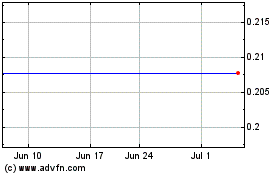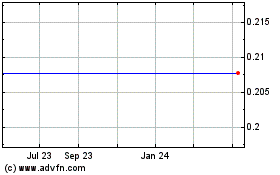FDA Grants Cytori Conditional Approval for a U.S. Pivotal Clinical Trial in Scleroderma
December 10 2014 - 8:00AM
Business Wire
Cytori Therapeutics, Inc. (NASDAQ:CYTX) today announced that the
U.S. Food and Drug Administration (FDA) has granted conditional
approval for an Investigational Device Exemption (IDE) for a
pivotal clinical trial, named the ‘STAR’ trial, to evaluate Cytori
Cell Therapy™ as a potential treatment for impaired hand function
in scleroderma, a rare autoimmune disease affecting approximately
50,000 patients in the United States.
The STAR trial is conditionally approved to be a randomized,
double blind, placebo-controlled pivotal clinical trial of 80
patients in up to 12 U.S. sites. The trial evaluates the safety and
efficacy of a single administration of Cytori Cell Therapy in
scleroderma patients affecting the hands and fingers. More than 90
percent of scleroderma patients have hand involvement that is
typically progressive and can result in chronic pain, blood flow
changes and severe dysfunction. The limited available treatments
for scleroderma may provide some benefit but do little to modify
disease progression or substantially improve symptoms.
Cytori’s cell therapy processing technology, known as the
Celution® System, is regulated as a Class III medical device by the
U.S. FDA and requires a successful pivotal trial and premarket
authorization (PMA) before it can be marketed in the United States.
The Celution System produces an autologous cell product from
adipose tissue known as adipose-derived regenerative cells
(ADRCs™).
The STAR trial is predicated on a completed pilot trial,
SCLERADEC-I. In data presented earlier this year, patients in
SCLERADEC-I showed, on average, 50 percent improvement at six
months across four important and validated endpoints used to assess
the clinical status in patients with systemic scleroderma with
impaired hand function. This data was published in the Annals of
the Rheumatic Diseases in May 2014.
“Hand problems from scleroderma result in substantial distress,
pain and impaired quality of life. We need more effective
therapeutic options for our patients.
I was impressed by the single center French study
with Celution processed adipose-derived regenerative
cells in patients with scleroderma
hand disability, and although it is limited by a
small number of patients, it provides the data to support the
larger, well-designed, randomized, controlled trial that we will be
conducting,” said Dr. Dinesh Khanna, Director, University of
Michigan Scleroderma Program and a principal investigator of the
STAR trial.
The STAR trial plans to use the Cochin hand score, a validated
measure of hand function, as the primary endpoint measured at 6
months after a single administration of Cytori Cell Therapy or
placebo. Patients in the placebo group will be eligible for
crossover to the active arm of the trial after all patients have
completed 12 months of follow up. Additional details about the
trial will be disclosed once finalized and agreement is reached
with the FDA. The trial is anticipated to begin enrollment in
2015.
“The STAR trial is a direct result of our new strategy to focus
on identifying innovative, later stage therapeutic applications and
moving the most promising into the clinic. We are hopeful that this
trial will show data consistent with the efficacy signal observed
in the recently published trial,” said Dr. Marc Hedrick, President
and CEO of Cytori. “Additionally, the rare nature of
scleroderma-associated hand involvement represents a potential
straightforward and targeted path to market and reimbursement
following the pivotal clinical trial.”
Cytori’s management team will host an informational meeting with
a Q&A period regarding the STAR trial during the J.P. Morgan
Healthcare Conference on January 12-15 in San Francisco. Additional
details will be provided in a press release later in December.
About Scleroderma
Scleroderma is a chronic autoimmune disorder associated with
fibrosis of the skin, destructive changes in blood vessels and
multiple organ systems as the result of a generalized
overproduction of collagen. Scleroderma affects women four times
more frequently than men and is typically detected between the ages
of 30 and 50. Most people suffering from scleroderma have disabling
disease involving the hands. The National Institute of Arthritis
and Musculoskeletal and Skin Diseases estimates that the number of
people in the United States with systemic sclerosis is
approximately 50,000.1, 2 Treatment options are directed at
protecting the hands from injury and detrimental environmental
conditions as well as the use of vasodilators. When the disease is
advanced, immunosuppressive and other medications may be used but
are often accompanied by intolerable side effects.
About Cytori Cell Therapy and the Celution® System
The active element in Cytori Cell Therapy is a mixture of cells
derived from the patient’s own fat tissue termed adipose-derived
stem and regenerative cells (ADRCs). ADRCs are obtained through
Cytori’s proprietary Celution System, which is a medical device
that enables point-of-care access to adult ADRCs by automating and
standardizing the extraction, washing, and concentration of a
patient’s own ADRCs for present and future clinical use. The
Celution System is being used in clinical research and under
limited approvals in Europe and Japan, where it is registered as a
medical device. Cytori’s investigational pipeline includes
applications in cutaneous, cardiovascular, orthopedic, urologic and
immune-related conditions.
About Cytori Therapeutics, Inc.
Cytori Therapeutics is developing cell therapies based on
autologous ADRCs to treat a variety of medical conditions. Multiple
scientific publications suggest that Cytori Cell Therapy and ADRCs
improve blood flow, moderate the inflammatory response and
facilitate wound repair. As a result, we believe these cells may
have benefit across multiple disease states. These therapies are
made available to the physician and patient at the point-of-care by
Cytori’s proprietary technologies and products, including the
Celution System product family. For more information:
visit www.cytori.com or follow Cytori on Twitter
www.twitter.com/cytori.
Cautionary Statement Regarding Forward-Looking
Statements
This communication includes forward-looking statements regarding
events, trends and business prospects, which may affect our future
operating results and financial position. Such statements,
including, but not limited to, those regarding our ability to
initiate and prosecute the pivotal STAR trial, and our ability to
obtain efficacy signal consistent with the prior SCLERADEC-I study,
are forward-looking statements. Such statements are subject to
risks and uncertainties that could cause our actual results and
financial position to differ materially. Some of these risks
include clinical and regulatory uncertainties, the challenges
inherent in convincing physicians and patients to adopt the new
technology, dependence on third party performance, performance and
acceptance of our products, and other risks and uncertainties
described under the “Risk Factors” in Cytori's Securities and
Exchange Commission Filings, including in its most recent
annual and quarterly reports. Cytori assumes no responsibility to
update or revise any forward-looking statements contained in this
press release to reflect events, trends or circumstances after the
date of this communication.
1 http://www.niams.nih.gov/Health_Info/Scleroderma/default.asp
(accessed 12 Dec 2014).2 Mayes MD. Scleroderma epidemiology. Rheum
Dis Clin N Am 2003; 29:239-34.
Cytori Therapeutics, Inc.Tiago Girao, Chief Financial
Officer1-858-458-0900ir@cytori.com
Cytori Therapeutics (NASDAQ:CYTX)
Historical Stock Chart
From Mar 2024 to Apr 2024

Cytori Therapeutics (NASDAQ:CYTX)
Historical Stock Chart
From Apr 2023 to Apr 2024
